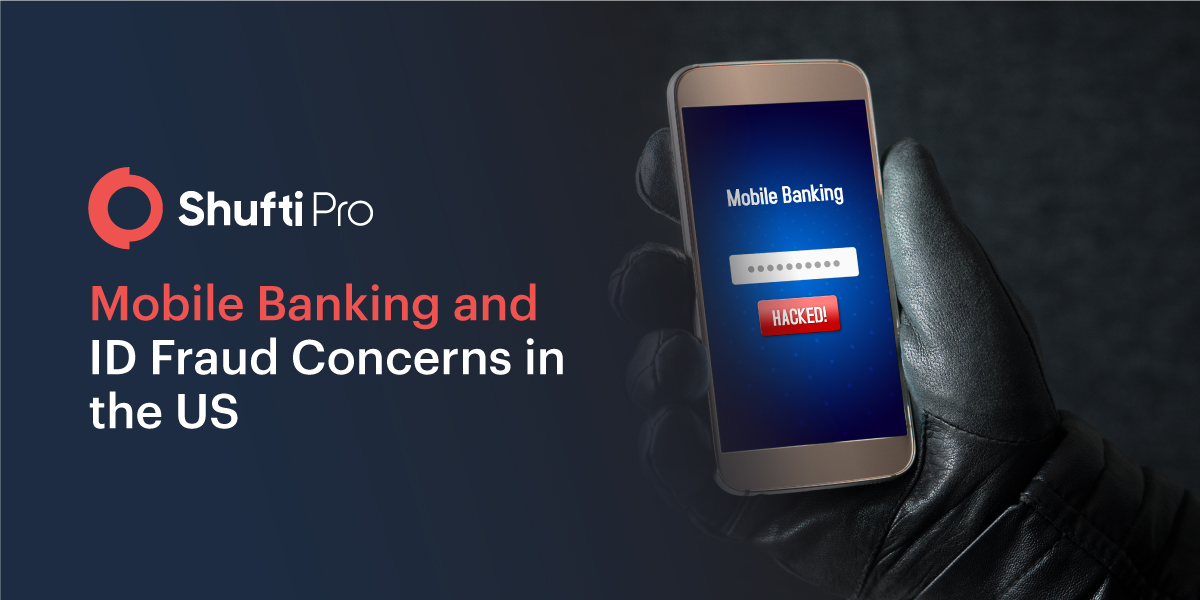FBO Accounts and Fintech – Securing Financial Operation with ID Verification

With global digitization, online financial services are becoming mainstream. Due to this, maintaining the proper balance between speed, risk, and regulatory compliance is crucial for the banking sector as well as Fintech companies. In addition to this, coronavirus has virtually paved the new norms of onboarding customers virtually, which has created a lot of challenges for financial firms to provide seamless and secure services.
However, FBO accounts are emerging, that are usually opened with the name of a beneficiary. Such entities may include children that provide the legal authority to access financial services until they reach legal age. Multiple accounts can also be set up under this scheme but permit benefits for only one person. These accounts can simplify financial transactions such as crowdfunding etc. yet, like other types of financial accounts, For Benefit of (FBOs) are also being manipulated by cybercriminals for personal gain. To secure these accounts, the banking sector needs to incorporate online identity verification services.
FBO Accounts Innovation – Assisting Fintech to Develop Seamless Financial Services
Technological revolutions have emerged with heaps of opportunities for the banking sector, fintech companies, and multiple other sectors. The development of FBO accounts has empowered Fintech companies to provide innovative banking services by simplifying the financial operational complexities and cost of getting a regulatory license.
Fintech businesses can open up the FBO accounts with their partnering banks to render benefits for their clients and could also be used for establishing virtual accounts as well. In the case of opening a virtual account, Fintech’s client would have a ledger account that lies under the umbrella of the FBO account. These accounts can be seamlessly traced from digital edgers with the support of the BaaS provider. Transactions made by the clients as beneficiaries to the FBO accounts are FDIC-insured on a pass-through as if they are carried out physically assuming regulatory standards are met.
Most importantly, the fintech companies don’t have an ownership interest in FBO accounts and have no control over the transactions. Like conventional accounts, banks maintain control over financial operations. However, due to the increasing number of financial crimes, money transmission is heavily regulated globally, and the laws obligate fintech companies to acquire regulatory licenses to take control of the finance and transmit funds to thor-party accounts, a complex and time taking process unless fintech is partnered with any bank. Because the chartered banks are not required to get money transmission licenses, many fintech companies use the FBO account structure, where the banks have custody of their assets, this process allows them to open accounts in no time.
For instance, in the US, money transmitting service companies need to comply with federal and state licensing terms to conduct operations. A federal license requires companies to register with Financial Crimes Enforcement Network (FinCEN) along with complying with anti-money laundering, know your customer, and bank secrecy act regulations. Every business needs to get the license according to the state in which they are going to operate, however, the process is time taking and can take up to two years to register in all US states. Other than this, companies can also set up FBO accounts from licensed chartered US banks.

How do Banks and Regulatory bodies Perceive FBO Accounts?
Despite heaps of business opportunities FBO accounts have come up, the banking sector, as well as the regulatory bodies, see to be potentially riskier than conventional accounts;
- As FBOs are basically used by fintech not the end-users, there is a viable chance that KYC prescribed information gathered during onboarding procedure may be not as strict as practiced in bank processes. However, the effectiveness of KYC helps to detect and eliminate financial crimes
- As digital ledger accounts under FBO are virtual, banks don’t have direct access or transparency through ledgering tools and financial transaction monitoring systems. Usually, bank partners often depend on the fintech companies to understand and control transactions that are carried out through FBOs.
Even though these accounts possess more threats than on-core accounts, it doesn’t mean risk can be mitigated. With rigid identity verification and transaction control systems, bank and fintech can secure their operations,
Regulatory Obligations to Secure FBO and Fintech
Keeping in mind the risk FBO accounts have and the complexity of getting a legal license, banks and Fintech need to be sure of their partners before establishing relationships. To secure both parties’ interests, regulatory bodies have stepped in and have established a set of standards and guidelines for the FBO accounts that should be ensured for risk mitigation. Banks and fintech companies need to have robust customer identification programs and should practice effective client due diligence along with enhanced due diligence. However, if these procedures are automated and streamlined with the risk-based approach of the financial firms, it will become easy to secure parameters.
Crucial regulatory aspect both, banks and fintech need to fulfill are as follow;
- Know Your Customer (KYC): this is a regulatory obligation for all financial service providers, including banks and Fintech. The main aim of this complaint is to allow businesses to determine the true identities of their customers before getting them on board. Other than this, with the help of the CDD procedure, risk-based profiles are also made, so that companies can make the right decision before enrolling clients.
- Anti-Money Laundering (AML) Screening: it’s hard to determine whether the customer is involved in serious crimes like money laundering and terrorist financing. To identify such criminals, AML screening laws are developed that back the businesses to screen their customers against global financial databases, watchlists, and PEPs list. In addition to this enhanced due diligence (EDD) procedure is also practiced for such clients that tend to possess high-potential risk.
- Transaction Monitoring System: the banks along with the fintech that is related to FBO accounts need to incorporate financial transaction monitoring systems. This will allow them to keep control over the money transmissions and in case of suspicious activities, companies can secure their operation and can report directly to the regulatory bodies like FinCEN.
How Shufti Can Help
Like money laundering, terrorist financing and other financial crimes are increasing banks as well as fintech companies are collaborating with each other to secure the digital ecosystem. This can only be accomplished by onboarding legit entities and keeping control over their transaction. Hence, overcoming the crimes and ensuring legitimate customer enrolment, digital identity verification solutions are becoming mainstream.
Shufti’s all-in-all identity verification services are an ideal solution for fintech and banks to remain compliant with the ever-growing regulatory regime. Businesses can verify their customer’s identities before onboarding them with 98.67% accuracy in less than a second. Last not but least, the AML screening service allows companies to screen clients against 1700+ global financial watchlists.
Want to know more about identity verification services? Get in touch with experts!


































![AUSTRAC’s ML/TF Risk Assessment Report on Foreign Subsidiary Banks [Part 4] AUSTRAC’s ML/TF Risk Assessment Report on Foreign Subsidiary Banks [Part 4]](https://shuftipro.com/wp-content/uploads/blog1-5.jpeg)






























![Money laundering and UAE’s KYC/AML Regulatory Regime [2022 Update] Money laundering and UAE’s KYC/AML Regulatory Regime [2022 Update]](https://shuftipro.com/wp-content/uploads/b-img-money-2.png)








